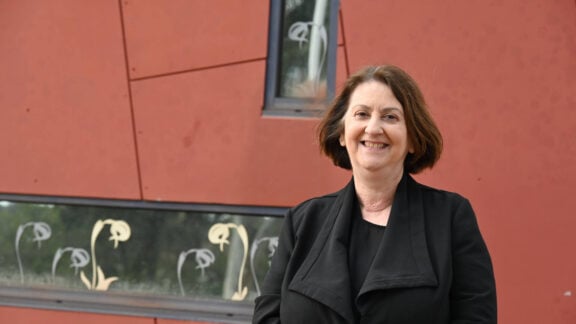Greece born and Melbourne based Vision Eye Institute ophthalmologist Dr Alex Ioannidis says there is evidence to suggest genetics play a part in the development of eye disease, specifically, pseudoexfoliation syndrome.
The disease is characterised by the formulation of microscopic white or grey protein clumps. The granular-like material can build up within many layers of ocular tissue that can block the normal drainage of fluid from the eye.
“There is a high prevalence of people with pseudoexfoliation glaucoma who are of Greek descent,” he says. “As an ophthalmologist of Greek descent, this is of particular interest to me.”
“If a family member is diagnosed with pseudoexfoliation syndrome, it’s crucial that everyone – brothers, sisters, sons and daughters – tell their optometrist about this and follow up with regular check-ups.”
Approximately 50 per cent of people diagnosed with pseudoexfoliation syndrome will develop this potentially blinding disorder.
Dr Ioannidis is keen to get the message out that regular testing is so important in the Greek community. “Pseudoexfoliation syndrome is often an age-related issue (average age over 60 years), and as with many ocular disorders the sooner it is diagnosed, the more successful the treatment outcomes can be. And we do have good treatments now for this disease.”
There are few early signs of the disease, so those with a family history should have regular eye examinations.
This systemic disorder and has also been associated with an increased risk of systemic hypertension, heart disease, hearing loss and strokes.
The increase in eye pressure caused by pseudoexfoliation syndrome can in turn lead to glaucoma. And glaucoma – sometimes called ‘The Sneak Thief of Sight’ – is concerning because it can cause permanent vision loss without the affected person being aware of any problem.
Dr Ioannidis advised that pseudoexfoliation syndrome can also lead to a greater prevalence of complex cataracts.
“Cataract surgery in eyes with pseudoexfoliation can present complications and challenges requiring careful planning and care,” Says Dr Ioannidis.
“This is crucial to ensure safe surgery and successful postoperative – so the main message is: the sooner pseudoexfoliation is diagnosed and treatment started, the better.”








